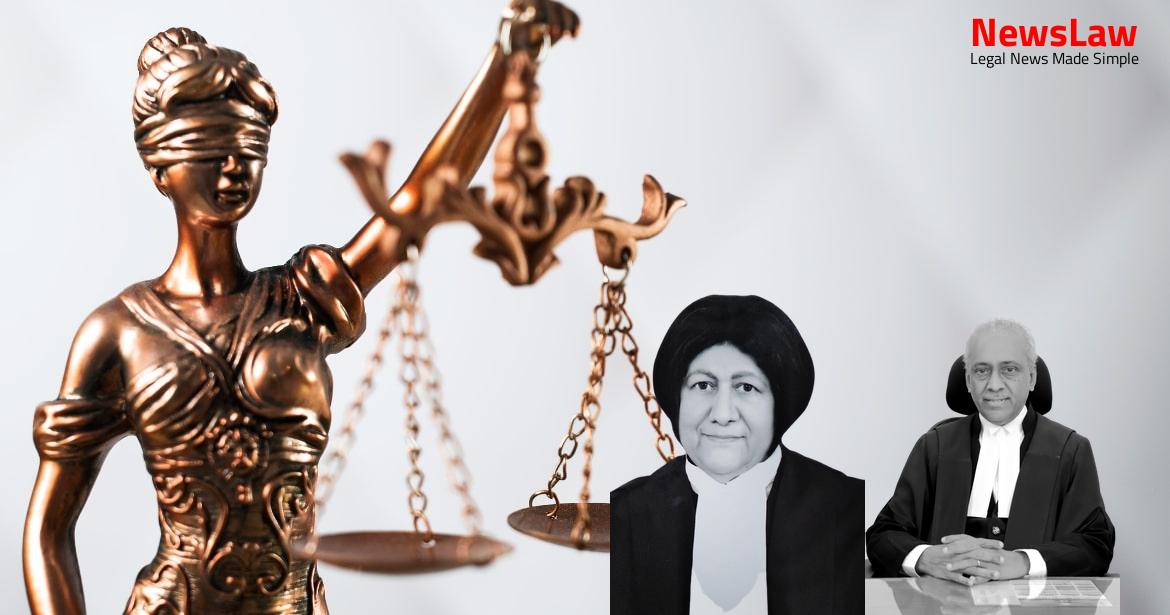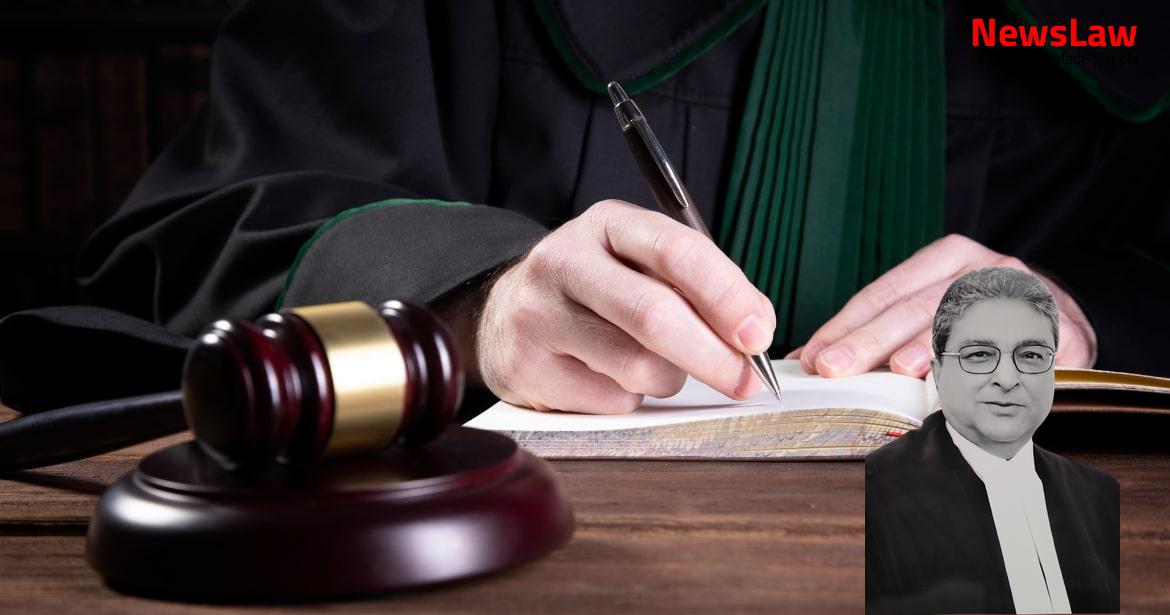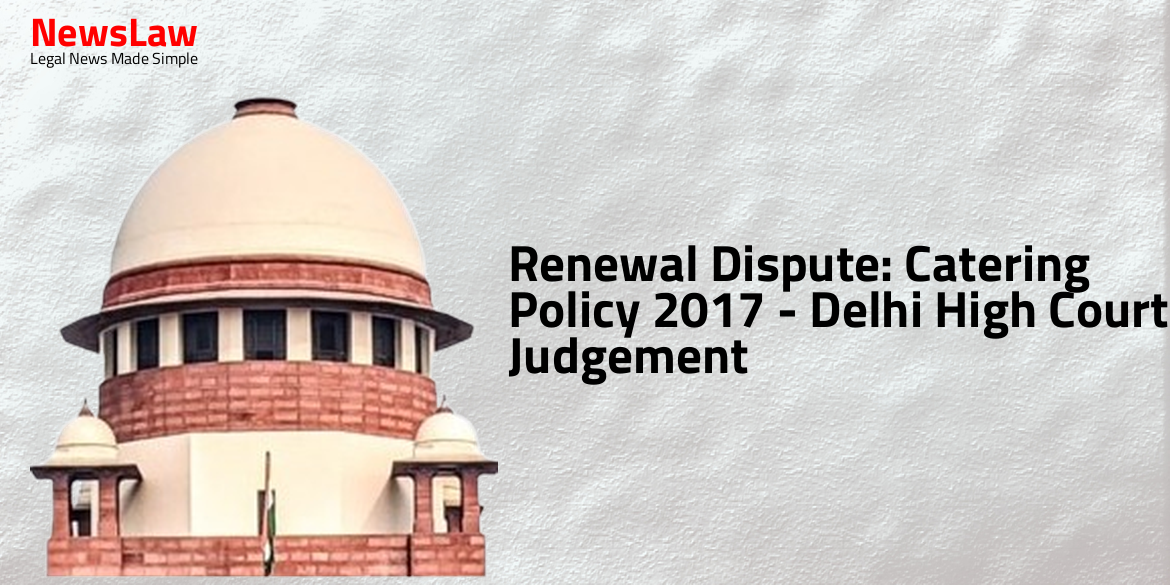The court’s legal analysis in the recent case regarding the delay condonation in filing an appeal under the Special Marriage Act sheds light on the intricate interplay between the Family Courts Act, Special Marriage Act, and the Limitation Act. Understanding the significance of these provisions is key to grasping the complexities of this legal matter. Let’s delve into the court’s examination of the applicable laws and their implications on the case at hand.
Facts
- Special Leave Petition filed against an order condoning the delay in filing First Appeal No. 445 of 2020.
- The High Court of Madhya Pradesh allowed the application for condonation of delay in filing the appeal.
- First Appeal filed against an ex parte judgment and decree of divorce dated 18 December 2019.
- The Appeal was filed on 1 March 2020.
- The High Court considered the application for condonation of delay.
- The High Court was satisfied that there was sufficient cause for the delay in filing the First Appeal.
- The High Court accordingly condoned the delay in filing the First Appeal.
Also Read: Challenging Conviction: Legal Analysis Spotlight
Issue
- The main issue in this Appeal is whether delay in filing an Appeal from a decree of divorce under the Special Marriage Act, 1954 can be condoned under Section 5 of the Limitation Act, 1963.
- The relevant provisions of the Limitation Act 1963, Family Courts Act 1984, and Special Marriage Act 1954 are important in determining the validity of condoning the delay in filing the Appeal.
- Section 29(3) of the Limitation Act regarding savings and the applicability of section 3 based on special or local laws prescribing different periods of limitation are crucial in this context.
Also Read: Analysis of Contempt Charges for Breach of Undertaking
Arguments
- Mr. Shrivastava, representing the Petitioner, argued that Section 19(3) of the Family Courts Act, which requires an appeal to be filed within 30 days, prevails over the 90-day limitation period in the Special Marriage Act.
- He emphasized Section 29(3) of the Limitation Act, stating that unless the specific law governing marriage or divorce makes an exception, provisions of the Limitation Act do not apply.
- The Special Marriage Act does not make an exception to Section 29(3) of the Limitation Act, therefore the delay in filing an appeal under the Special Marriage Act is not condonable under Section 5 of the Limitation Act.
- Mr. Shrivastava claimed that the High Court was incorrect in condoning the delay in filing the appeal from a decree of divorce under the Special Marriage Act, citing Sections 19(3) and 20 of the Family Courts Act, 1984.
- He argued that every appeal from a decree passed by a Family Court must be filed within 30 days, not the 90-day period as prescribed under the Special Marriage Act, which the Respondent’s lawyer mistakenly believed.
- The Respondent was misled by the advice of the lawyer.
Also Read: Land Dispute: Court’s Analysis on Condonation of Delay
Analysis
- There is an inconsistency between the period of limitation for filing an appeal prescribed by the Family Courts Act and the Special Marriage Act.
- The non-obstante provision of Section 20 of the Family Courts Act gives overriding effect to the Family Courts Act, making the period of limitation for filing an appeal from a Family Court judgment 30 days.
- The appeal in question was filed within the 90-day limitation period prescribed under the Special Marriage Act.
- The High Court’s finding of sufficient cause for the appeal delay does not warrant intervention under Article 136 of the Constitution of India.
- The Division Bench of Calcutta High Court held that provisions of Section 5 of the Limitation Act apply to matrimonial appeals under the Hindu Marriage Act.
- The Limitation Act applies to original proceedings, and the word ‘proceeding’ in Section 29(3) is construed to exclude appeals.
- The purpose of S. 29(3) is to ensure marital legal actions are not barred by limitation.
- The Limitation Act provisions concerning appeals contain reasonable and fair principles.
- Matrimonial appeals under special acts were governed by the provisions of the preceding Limitation Act.
- Special enactments like the Family Courts Act and Special Marriage Act do not expressly exclude the application of the Limitation Act to their appeals.
- Section 29(3) of the Limitation Act does not extend to appeals under the Family Courts Act.
- The division bench emphasized that if the legislature intended S. 29(3) to apply to appeals, it would have expressly stated so.
- There is no period of limitation specified for matrimonial appeals under the Indian Divorce Act.
- It is crucial to prevent interpretations that would lead to absurd results unless the legislature explicitly intends such outcomes.
- The Statements of Objects and Reasons clarify that S. 29(3) excludes the Limitation Act from suits under laws related to marriage and divorce, not appeals.
- Section 19(3) of the Family Courts Act mandates filing of appeals within 30 days from the date of judgment or order of a Family Court.
- Section 20 of the Family Courts Act confers overriding effect on its provisions, regardless of any inconsistency in other laws.
- Section 39(4) of the Special Marriage Act requires appeals to be filed within 90 days from the date of the decree or order.
- Section 29(3) of the Limitation Act excludes its application to suits or proceedings under laws related to marriage and divorce.
- The Family Courts Act provides a shorter limitation period compared to the Special Marriage Act and the Limitation Act.
- Original proceedings under the Hindu Marriage Act or the Special Marriage Act fall within the scope of Section 29(3) of the Limitation Act.
- The term ‘proceeding’ in the context of Section 29(3) refers to original proceedings and does not include appeals.
- Suits and original proceedings related to marriage and divorce are excluded from the purview of the Limitation Act under Section 29(3).
- The Delhi High Court ruled that the Limitation Act does not apply to appeals, only to suits and original proceedings.
- An appeal under Section 19 of the Family Courts Act, concerning a decree of divorce under the Special Marriage Act, can be condoned for delay.
- Courts may adopt a liberal approach in condoning delay if rejecting an appeal based on limitation would mean denying justice on merits.
Case Title: ARUNODAY SINGH Vs. LEE ANNE ELTON (2021 INSC 355)
Case Number: SLP(C) No.-010751 / 2021



